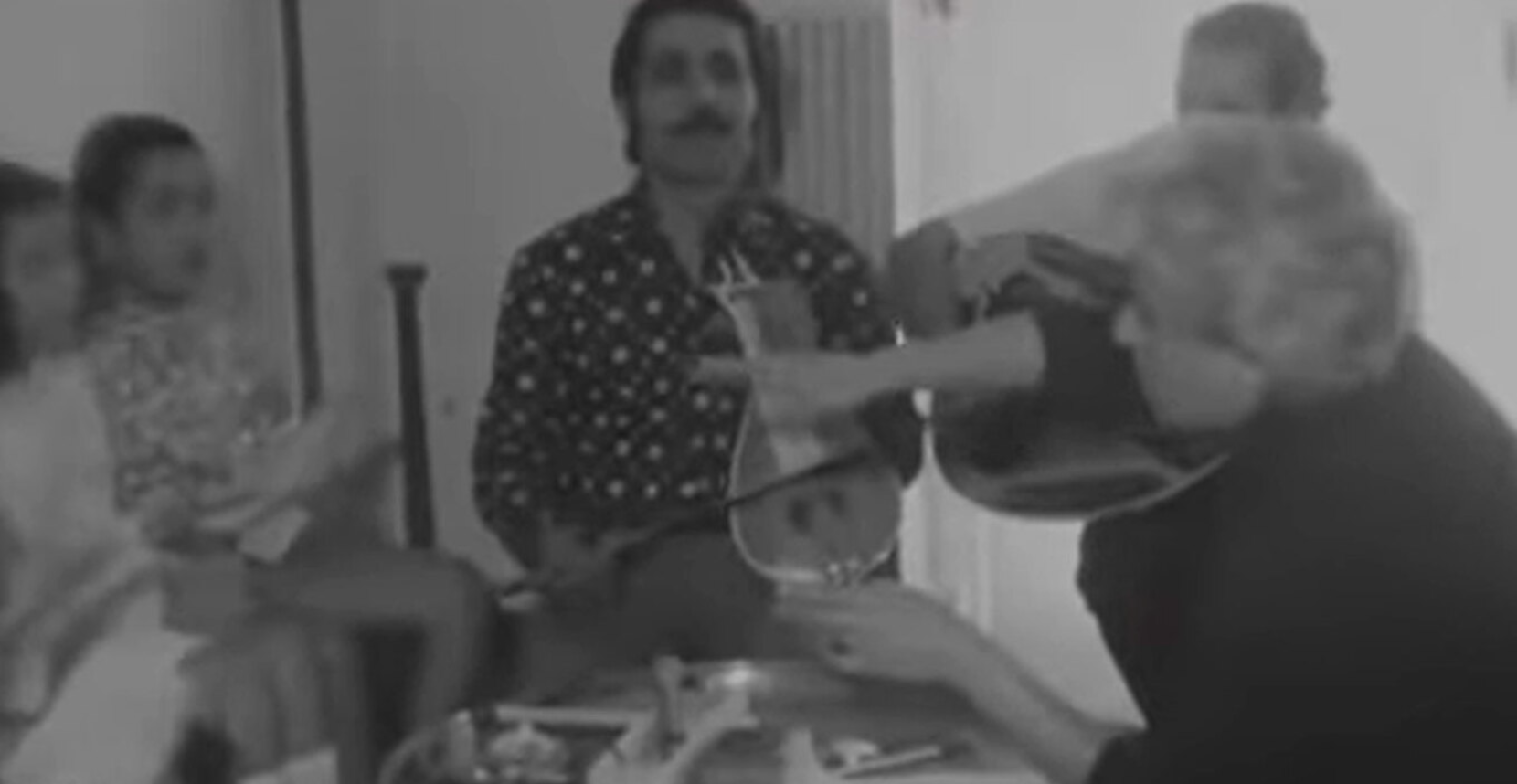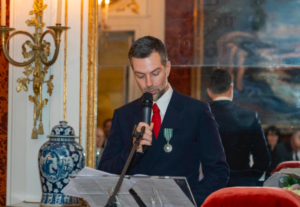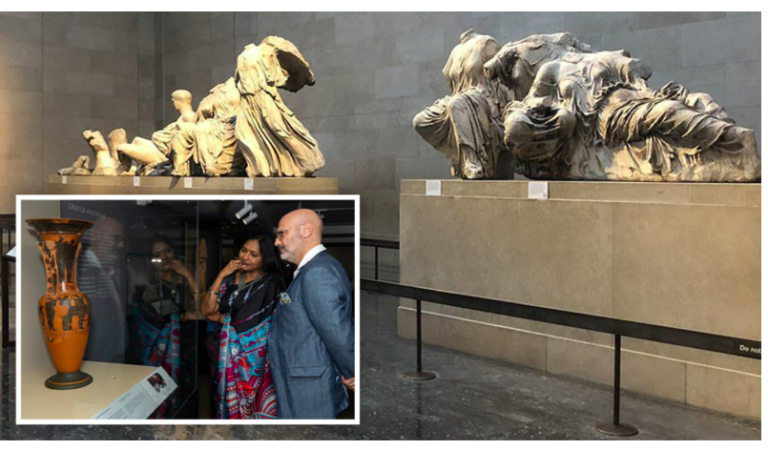At the Third Parliamentary Summit, held in Riga, leaders and representatives from across Europe gathered to address the pressing security challenges facing the region, with a particular focus on the ongoing conflict in Ukraine.
The Summit, hosted by the parliaments of Ukraine and Latvia, brought together parliamentary speakers and international officials to promote peace, stability, and solidarity with Ukraine amidst the escalating tensions and humanitarian crises triggered by the war.
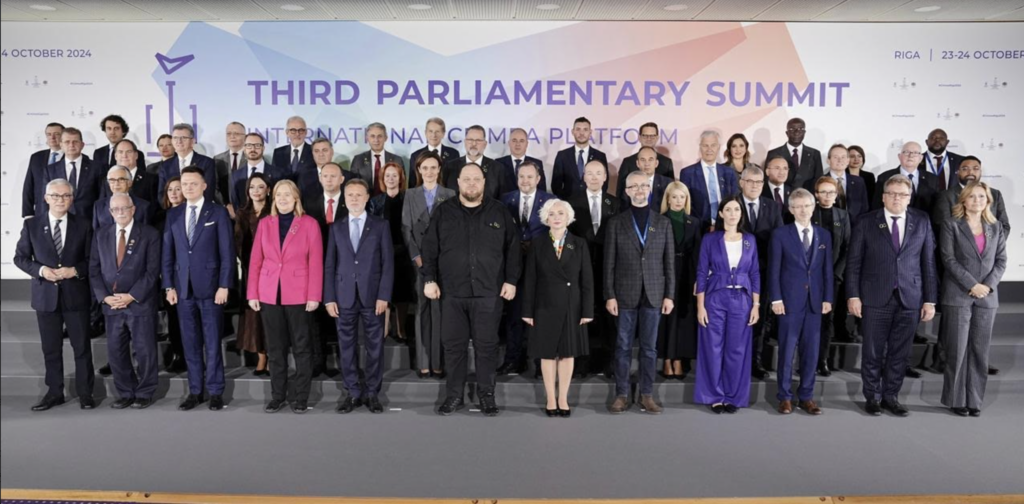
The Summit opened with addresses from prominent European leaders, including Latvian Prime Minister Evika Siliņa, Foreign Affairs Minister Baiba Braže, and speakers from various European parliaments, underscoring a collective commitment to supporting Ukraine in these challenging times.
Among these distinguished voices, Dr. Dionysia Avgerinopoulou, Vice-President of the Inter-Parliamentary Union (IPU), addressed the assembly with a strong call for renewed dialogue and peaceful diplomacy.
Representing the IPU on behalf of its President, Dr. Avgerinopoulou thanked the hosts and noted the unprecedented security threats Europe faces today, unseen since the Cold War era. “Day by day, we witness how violence continues to spread, claiming the lives of thousands and forcing millions into displacement,” she remarked, emphasizing how deeply the war in Ukraine has shaken global stability. The IPU, she affirmed, has “consistently and unequivocally condemned the military aggression against Ukraine and its people by the Russian Federation” and called for unwavering adherence to the principles of sovereignty and territorial integrity as cornerstones of international peace.
Highlighting the dangerous rhetoric around nuclear weapons that has surfaced globally, she insisted that the IPU remains committed to upholding a “nuclear taboo,” condemning any threat or use of weapons of mass destruction as “reckless and unacceptable.”
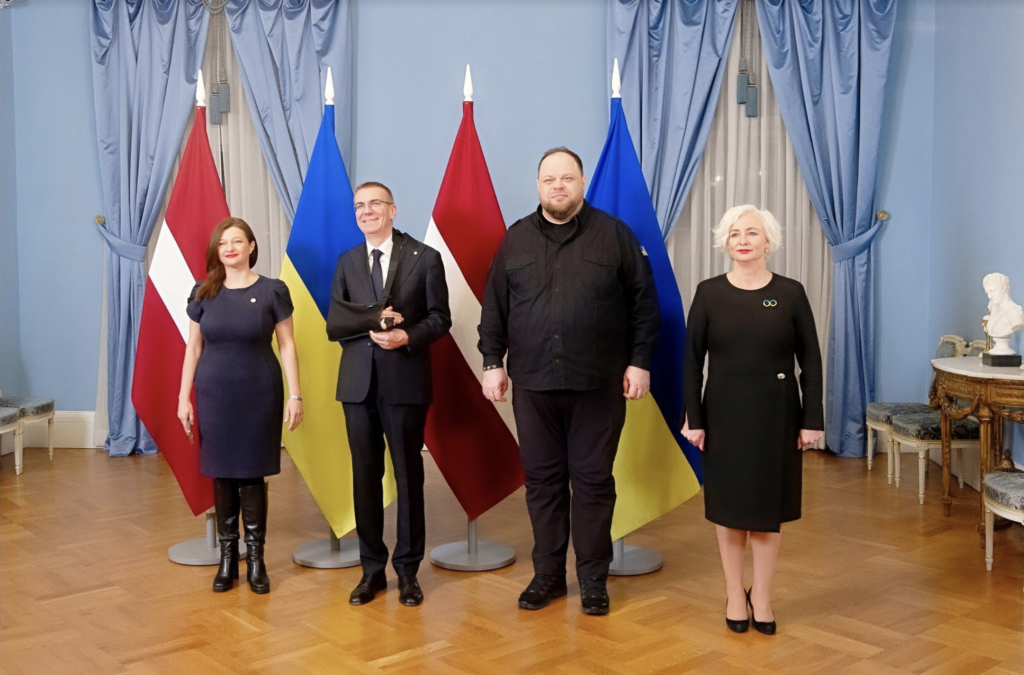
Dr. Avgerinopoulou also underscored the need to move beyond outdated Cold War mentalities and focus on collaboration, advocating for parliamentary diplomacy as an essential tool in peacebuilding. The IPU, she noted, recently adopted the Geneva Declaration on Parliamentary Diplomacy, which recognizes parliamentary dialogue as a unique avenue for conflict resolution, even when traditional diplomatic channels are strained or broken.
Through the IPU Task Force on the Peaceful Resolution of the War in Ukraine, the organization has been fostering critical dialogue on nuclear safety, food security, the treatment of prisoners of war, and the plight of Ukrainian children. “Even in the fog of war,” she emphasized, “the option for diplomacy and dialogue must be maintained.”
Dr. Avgerinopoulou stressed that peace must be more than the absence of conflict; it must be rooted in principles of human and common security. This approach, she explained, involves not only protecting people from violence and oppression but ensuring access to essential resources, healthcare, and education so that individuals can lead lives of dignity and security. “The IPU remains dedicated to promoting human security and common security as a compass to a peaceful world,” she concluded.
The Summit’s main sessions were further complemented by high-level side events dedicated to crucial themes impacting Ukraine and the wider region. The “High-Level Thematic Conference on the Peace Formula” addressed the critical “Implementation of the UN Charter and Restoration of Ukraine’s Territorial Integrity and World Order,” emphasizing the steps needed to ensure Ukraine’s sovereignty within the framework of international law.
Another significant side event, the “Expert Discussion on the Deportation of the Crimean Tatar People in 1944,” explored the long-standing struggles faced by the Crimean Tatars, moving the conversation from the acknowledgment of genocide to actionable steps toward restoring their rights within the Ukrainian state.
These thematic sessions fostered deeper understanding and offered valuable insights into resolving complex historical and political challenges. Together, they underscored the Summit’s commitment not only to supporting Ukraine’s present-day sovereignty but also to addressing the historical injustices that continue to shape its path to peace and stability.
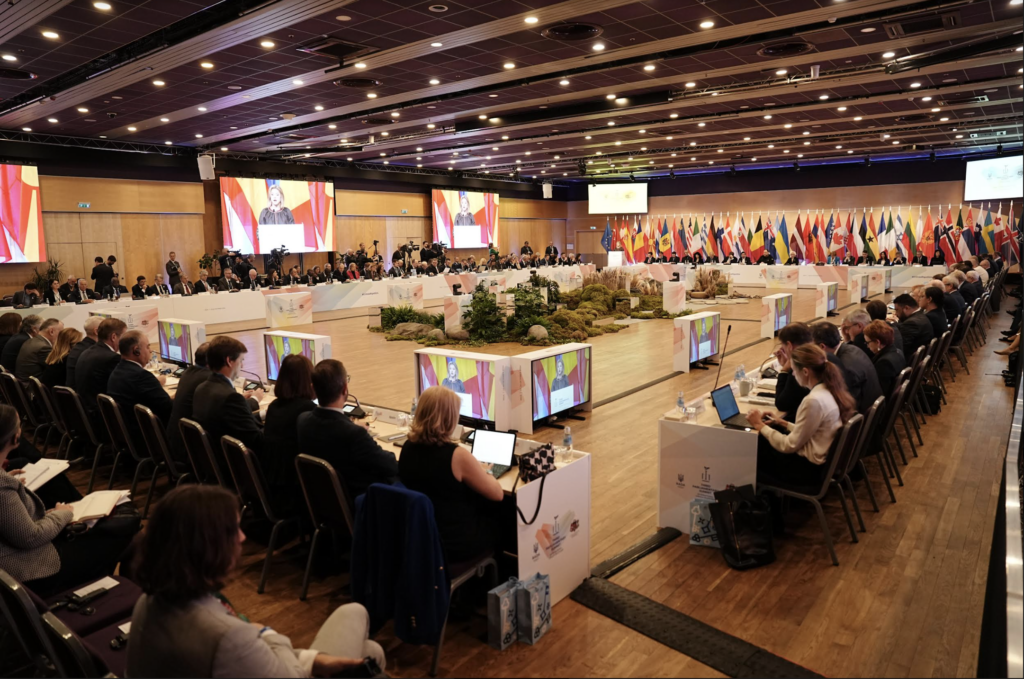
Ask me anything
Explore related questions

